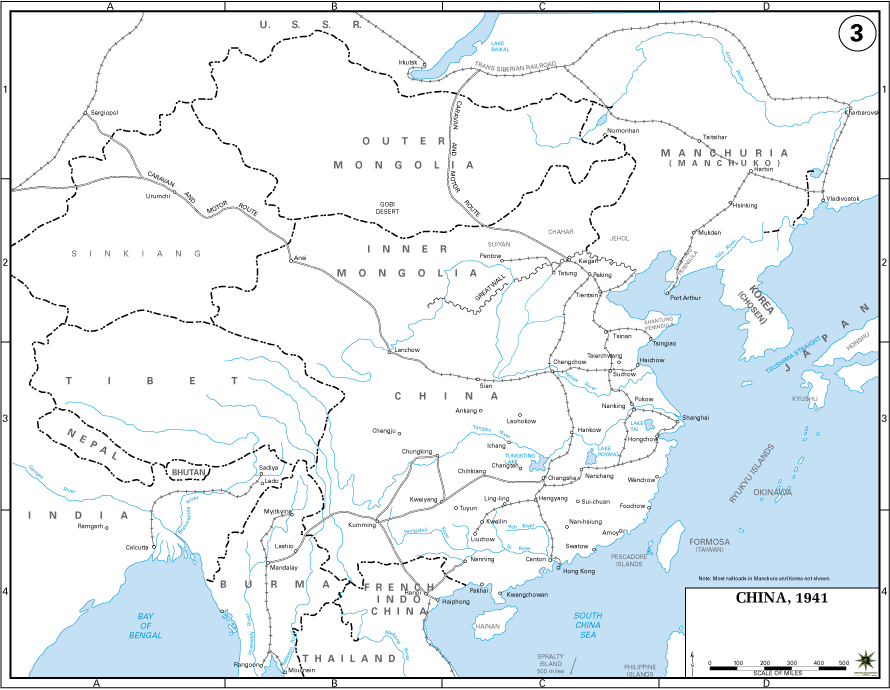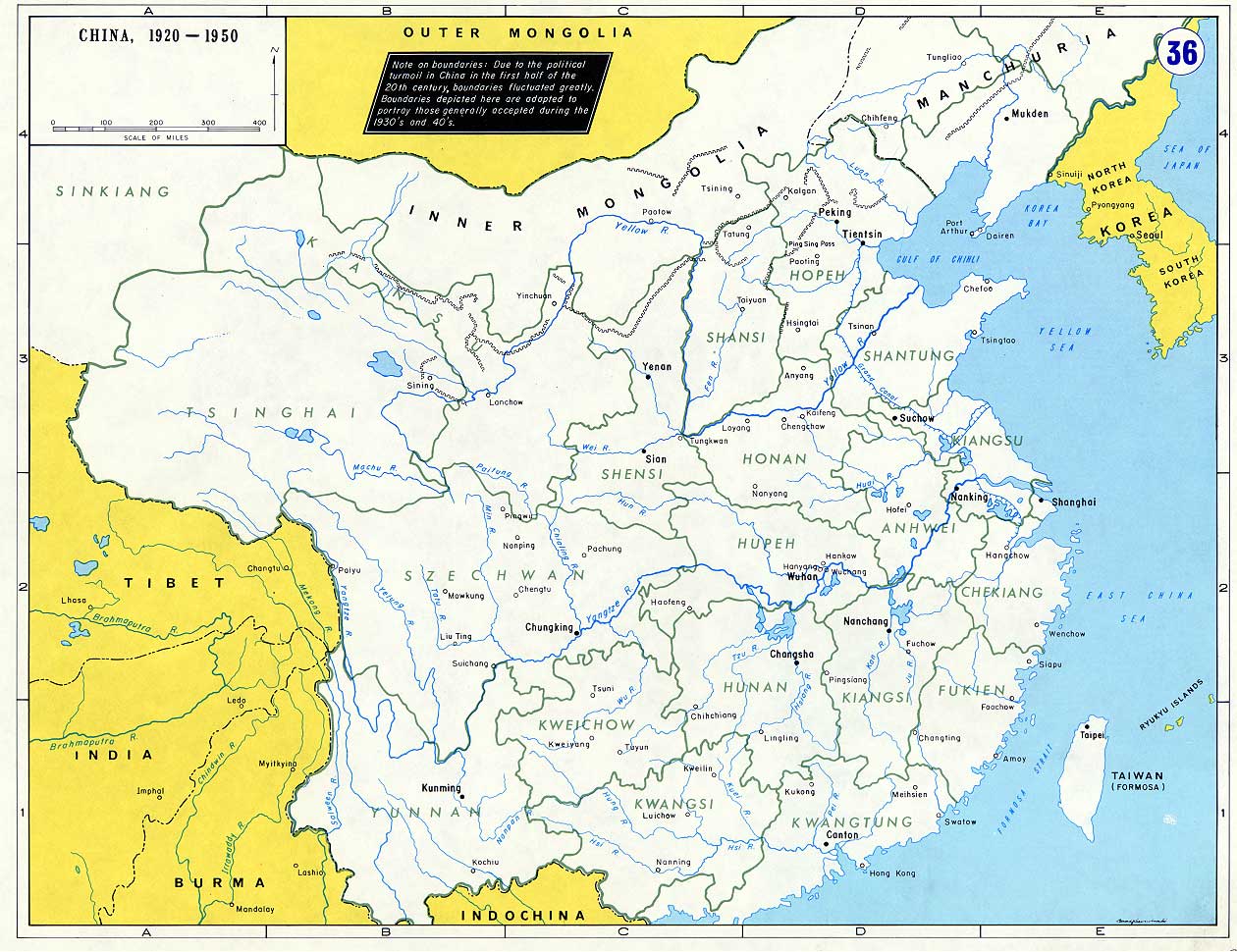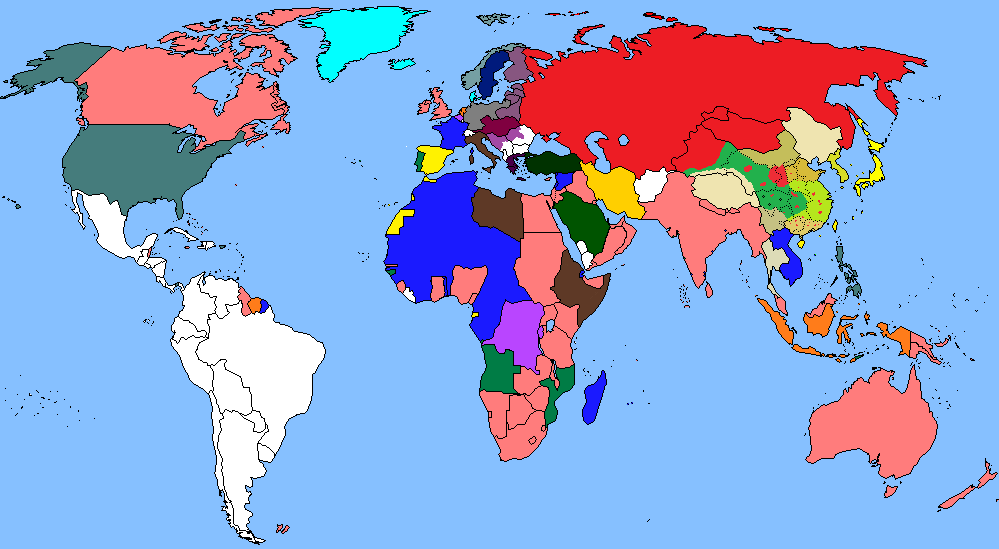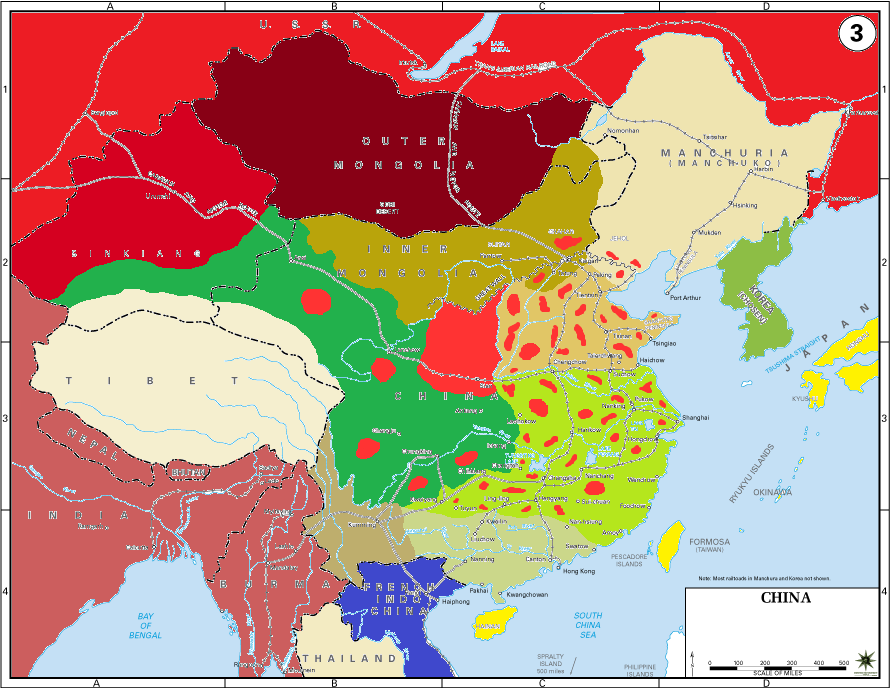Chapter 18: The Mengjiang Khanate
Chapter 18: The Mengjiang Khanate:

Prince Demchugdongrub of Mengjiang had gained much territory in the Soviet – Co-Prosperity Sphere agreement that granted him and Manchuria the southeastern parts of the Mongolian People's Republic. Still despite this territorial growth Demchugdongrub felt week. His Bank of Mengjiang was depending on the Bank of Japan, his whole Air Force made up from 28 Japanese Fighters only had Japanese pilots and unlike in the Empire of Manchuria where Japanese Zaibatsu (conglomerates) invested heavily under the guidance of Nissan founder Aikawa Yoshiuke (and creating a state controlled industry) during the Five Years Plan. The Manchu Air Force even had 100 NakajimaType 91 from the Japanese, showing that his small 28 fighters were a clear statement how important Japan and the other members of the Co-Prosperity Sphere believed Mengjiang to be. How could Demchugdongrub lame them, he was only a prince, while the Emperor of Chosen was directly connected with his imperial House to the Imperial House of Japan and Emperor Piyu of Mandchukuo was even the rightful last Emperor of Qing China. Recently Mengjiang and Manchu had a border dispute about regions inhabited by both people and ethnics and Japan negotiated a treaty between them to end the conflict.

Sadly for Prince Demchugdongrub the Manchu and Piyu became most of the disputed territory because the Japanese did not recognize most mongols living there because of their nomadic lifestyle and constant border crossing between both states, Mongolia and even the Soviet Union. With the province of Hsingan, East Hopei, as well as parts of East Chahar (seen as a natural Mengjiang region) going to the Empire of Manchu, Mengjiang only got pats of Hsingan, East Chahar and the whole region of South Chahar. Japan even gave full control of Kanto-Shuandthe Diren harbor to Piyu so that Mancukuo just like Chosen could start it's own navy and control or guard the incoming sea trade themselves. While Manchu Jukogyo Kaihatsu Kabushiki Kasha (the Manchurian Industrial Developement Company) industrialized the Empire of Manchuria and the Manchu Society for Light Metal helped the Kwantung and Manchu Army and Navy grow stronger. Demchugdongrub meanwhile felt like a bystander unable to convince the Zaibatsu to invest in Mengjiang for now.
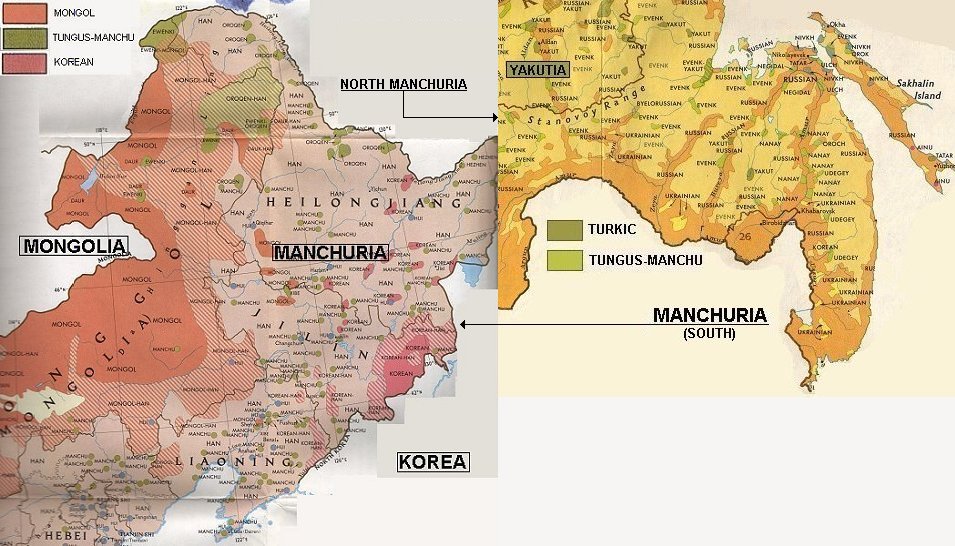
Intending to change this he pushed for a Monetary Currency Reform gaining a little bit more independence over the Bank of Mengjiang from the Japanese. With the help of the Directorate General of Communications Prince Demchugdongrub moved Mengjiangs capital from he more nomadic Zhangbei towards the southern border at Kalgan were most central train-rails in Mengjiang came together. Demchugdongrub then focused on urbanizing his nomadic state further and created a monarchic crown diet to support his rule. The original population of nearly 2 millian Mengjiang (Mongol) people quickly rose up to 4 million after the Suiyuan Campaign with a little help of Japanese, Mongols and Chinese that came to colonize, work and live in the new state of Mengjiang.

Marrying his son Dugursulong, to a Japanese noble woman, Demchugdongrub himself tried to gain more influence in the Imperial House of Japan, legitimizing his own rule and expanding his political independence and influence. Prince Demchugdongrub then declared his royal state the Mengjiang Khanate because he saw and refereed to himself as the heir of Genghis Khan. Since a Khanate or Khaganate was a political entity ruled by a Khan or Khagan, Demchugdongrub claimed this title for himself to get head to head with he Emperors of Japan, Chosen and Manchuria. Despite all this afford and the finally starting of a industrialization and the building of more infrastructure, Demchugdongrub knew that it was a long way till his dreams of the Greater Mengjiang Khanate were fulfilled. While he tried to push further into China with the Mengiang Army the Japanese warned him that the Khalkha Campaign (War of Reunification) against the Mongolian People's Republic should better wait until the Soviet Union would be occupied with a war in Europe.

(Mengjiang, Manchu and Japan, their claims in the center, the new Manchu-Mengjiang border on the right)

Prince Demchugdongrub of Mengjiang had gained much territory in the Soviet – Co-Prosperity Sphere agreement that granted him and Manchuria the southeastern parts of the Mongolian People's Republic. Still despite this territorial growth Demchugdongrub felt week. His Bank of Mengjiang was depending on the Bank of Japan, his whole Air Force made up from 28 Japanese Fighters only had Japanese pilots and unlike in the Empire of Manchuria where Japanese Zaibatsu (conglomerates) invested heavily under the guidance of Nissan founder Aikawa Yoshiuke (and creating a state controlled industry) during the Five Years Plan. The Manchu Air Force even had 100 NakajimaType 91 from the Japanese, showing that his small 28 fighters were a clear statement how important Japan and the other members of the Co-Prosperity Sphere believed Mengjiang to be. How could Demchugdongrub lame them, he was only a prince, while the Emperor of Chosen was directly connected with his imperial House to the Imperial House of Japan and Emperor Piyu of Mandchukuo was even the rightful last Emperor of Qing China. Recently Mengjiang and Manchu had a border dispute about regions inhabited by both people and ethnics and Japan negotiated a treaty between them to end the conflict.

Sadly for Prince Demchugdongrub the Manchu and Piyu became most of the disputed territory because the Japanese did not recognize most mongols living there because of their nomadic lifestyle and constant border crossing between both states, Mongolia and even the Soviet Union. With the province of Hsingan, East Hopei, as well as parts of East Chahar (seen as a natural Mengjiang region) going to the Empire of Manchu, Mengjiang only got pats of Hsingan, East Chahar and the whole region of South Chahar. Japan even gave full control of Kanto-Shuandthe Diren harbor to Piyu so that Mancukuo just like Chosen could start it's own navy and control or guard the incoming sea trade themselves. While Manchu Jukogyo Kaihatsu Kabushiki Kasha (the Manchurian Industrial Developement Company) industrialized the Empire of Manchuria and the Manchu Society for Light Metal helped the Kwantung and Manchu Army and Navy grow stronger. Demchugdongrub meanwhile felt like a bystander unable to convince the Zaibatsu to invest in Mengjiang for now.

Intending to change this he pushed for a Monetary Currency Reform gaining a little bit more independence over the Bank of Mengjiang from the Japanese. With the help of the Directorate General of Communications Prince Demchugdongrub moved Mengjiangs capital from he more nomadic Zhangbei towards the southern border at Kalgan were most central train-rails in Mengjiang came together. Demchugdongrub then focused on urbanizing his nomadic state further and created a monarchic crown diet to support his rule. The original population of nearly 2 millian Mengjiang (Mongol) people quickly rose up to 4 million after the Suiyuan Campaign with a little help of Japanese, Mongols and Chinese that came to colonize, work and live in the new state of Mengjiang.

Marrying his son Dugursulong, to a Japanese noble woman, Demchugdongrub himself tried to gain more influence in the Imperial House of Japan, legitimizing his own rule and expanding his political independence and influence. Prince Demchugdongrub then declared his royal state the Mengjiang Khanate because he saw and refereed to himself as the heir of Genghis Khan. Since a Khanate or Khaganate was a political entity ruled by a Khan or Khagan, Demchugdongrub claimed this title for himself to get head to head with he Emperors of Japan, Chosen and Manchuria. Despite all this afford and the finally starting of a industrialization and the building of more infrastructure, Demchugdongrub knew that it was a long way till his dreams of the Greater Mengjiang Khanate were fulfilled. While he tried to push further into China with the Mengiang Army the Japanese warned him that the Khalkha Campaign (War of Reunification) against the Mongolian People's Republic should better wait until the Soviet Union would be occupied with a war in Europe.

(Mengjiang, Manchu and Japan, their claims in the center, the new Manchu-Mengjiang border on the right)
Last edited:

